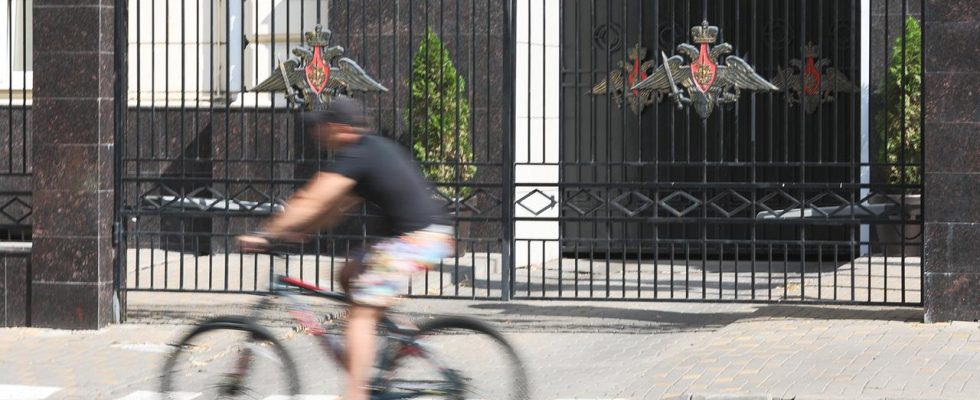After the end of the uprising of the Wagner troops, the situation seems to be slowly returning to normal. The situation appears to be calm in Voronezh, Lipetsk and Rostov. Security measures remained in place in Moscow.
After the end of the uprising of the Wagner troops, the units withdrew from the affected regions, according to the authorities. They’re slowly trying to get back to normal.
Like in Voronezh – about 500 kilometers south of Moscow. The regional governor there, Alexander Gusev, reports on the retreat of the Wagner troops. “The units of the Wagner paramilitary group are completing their retreat in the Voronezh region,” he told Telegram. Everything is going “normally and without incident”. As soon as the situation has finally been clarified, all restrictions on the civilian population that have been in place so far are to be lifted.
The Voronezh region bordering Ukraine was a target of the Wagner Group uprising, which later ended surprisingly. Little is known about the incidents in Voronezh on Saturday. The Russian military was deployed in the region, and the army had reported “combat operations”. During the uprising, a fuel depot caught fire for reasons that were initially unclear.
Apparently quiet location in Rostov
The Wagner fighters had already withdrawn from the city of Rostov in south-west Russia on Saturday evening. Video footage from the AP news agency in Rostov showed people cheering for the Wagner troops as they marched away. Some ran up to Prigozhin in an SUV to shake his hand. The governor of the region later said that all the mercenaries had left the city.
It was quiet in Rostov on Sunday morning after the Wagner troops left, the Russian state news agency RIA reported. On their video via Telegram, a man was sweeping the street and cars were driving through the city. On Saturday, pictures of the Wagner troops in battle tanks dominated the scene in various parts of the city. During the course of Saturday, the mercenaries also penetrated into the Russian region of Lipetsk, around 400 kilometers south of Moscow. According to the regional administration, they also withdrew from there.
In Moscow and the surrounding area, the “anti-terrorist measures” remain in place for the time being – including the traffic restrictions on the highway towards Rostov-on-Don. As an AFP reporter observed, large police patrols continued to be deployed on a main road south of Moscow. The security authorities had ordered increased measures in Moscow, the Moscow region and the Voronezh region on the border with Ukraine on Saturday. The Mayor of Moscow, Sergei Sobyanin, had declared Monday a day off in view of the difficult situation.
In Moscow on Sunday, however, there was little evidence of the anti-terrorist warning issued at the start of the uprising and nominally remaining in force after the agreement was reached. Many people were out and about in the city center, and the street cafés were well frequented. Traffic had also returned to normal, and roadblocks and checkpoints were lifted.
Power struggle had escalated
On Friday evening and Saturday, the power struggle between the head of the Russian Wagner mercenary group, Yevgeny Prigozhin, and the Russian military leadership escalated. Wagner fighters invaded Russia from Ukraine with the aim of overthrowing the military leadership in Moscow and seized the southern Russian army headquarters in Rostov.
On Saturday evening, mediated by the Belarusian ruler Alexander Lukashenko, Prigozhin surprisingly reported a U-turn and announced the withdrawal of his fighters. In exchange for ending their uprising, Prigozhin and his fighters will not be prosecuted, according to the Kremlin. Prigozhin himself is to leave for Belarus.
Prigozhin criticized Shoigu for months
For months, Prigozhin had sharply criticized the military leadership around Defense Minister Sergei Shoigu and Chief of Staff Valeri Gerasimov, accusing them of incompetence. On Friday, he accused Shoigu of attacking the Wagner mercenaries from the air, killing many fighters. He also openly opposed Putin. Prigozhin also demanded the dismissal of Shoigu and Gerasimov.
The power struggle escalated during a potentially crucial phase of the war in Ukraine. The Ukrainian army recently launched its long-awaited offensive to recapture Russian-held territories.
With information from Stephan Laack, ARD Studio Moscow

